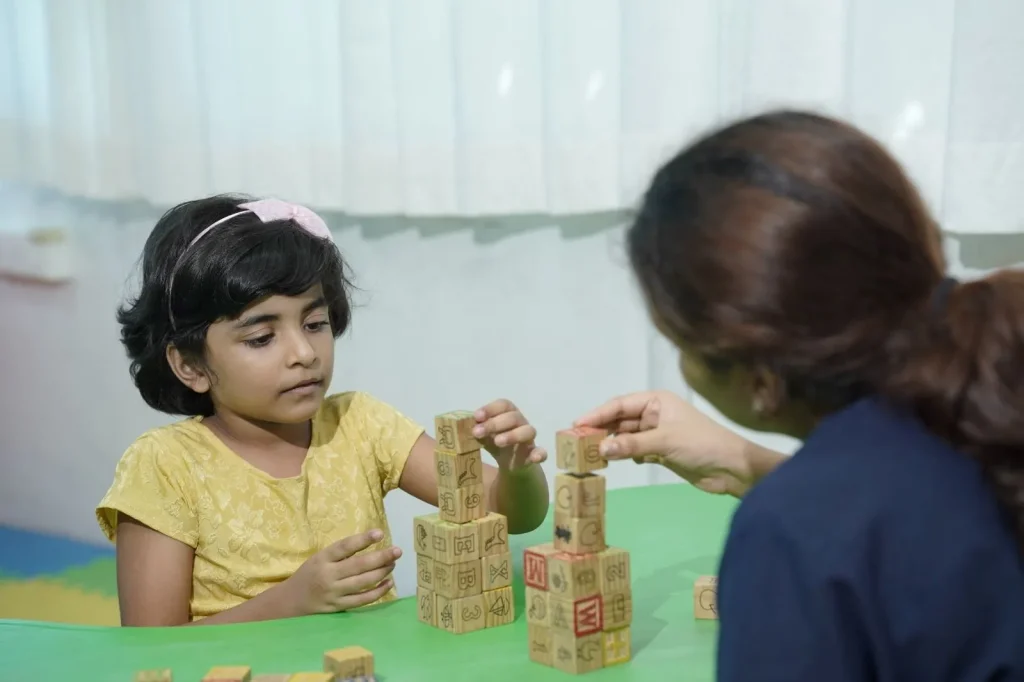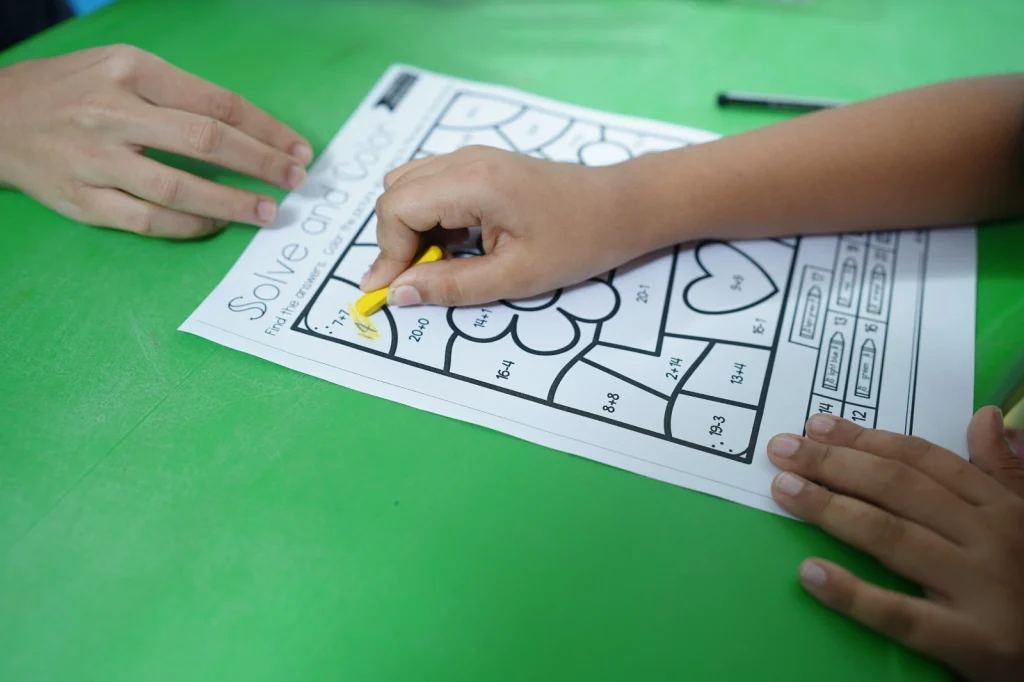Multisensory Learning Enhances Reading Skills
Written by Mary Divya K Thomas, M.A., B.Ed (ID) Special Educator Reading is a complex task. Do you know why? It demands a few basic
Intellectual disability is a condition that persists throughout one’s life. At Prayatna, our team of multidisciplinary professionals work together to provide comprehensive treatment depending on the specific needs of each child. Our aim is to empower their abilities, help overcome the challenges and lead fulfilling lives within their communities. Our treatment process aims to enhance a child’s potential and improve their quality of life. It involves an all-inclusive approach that is designed to the unique needs of each child and includes special education, behaviour therapy, speech therapy and occupational therapy.


Our team of experienced professionals conducts in-depth assessments to identify the unique strengths, challenges, and needs of each child. Our licensed professionals use a range of standardized tests, observations, and interviews to develop a thorough understanding of each child's abilities and areas for growth.

Based on the assessment and observation findings, we develop personalized treatment plans customized to the specific needs and goals of each child. Our all-inclusive approach with structured therapy programs and activities help learn essential life skills, such as communication, self-care, social skills, and community integration.

Our team provides proven behavioral interventions including ABA to address challenging behaviors commonly associated with intellectual disabilities. Our team collaborates with families and caregivers to develop positive behavior support plans and implement strategies to promote positive behavior change and skill development.

Our center offers educational support services to individuals with intellectual disabilities, including guidance, academic enrichment, and assistance with study skills. We work closely with schools and teachers to make sure that children receive the support they need to succeed academically.

We provide counselling and support services for families of children with intellectual disabilities. Our licensed therapists offer guidance, resources, and strategies to help families navigate the challenges associated with intellectual disabilities and build strong, supportive relationships.

We assist individuals and their families in planning for transitions across various life stages, including transitioning from childhood to adolescence and into adulthood helping them with skill development for functional independence.

Written by Mary Divya K Thomas, M.A., B.Ed (ID) Special Educator Reading is a complex task. Do you know why? It demands a few basic

Written By Mary Divya K Thomas M.A., B.Ed (ID) Special Educator Your child means the world to you. Their success is all that you desire

Rewieved By Mary Divya K Thomas M.A., B.Ed (ID) Special Educator Rewieved By Meghna Elizabeth Zachariah M.Sc., B.Ed (LD) Special Educator A child with a
Autism treatment often involves a customized, multidisciplinary approach that caters to the individual child’s specific needs and abilities. Applied Behavior Analysis (ABA) therapy is a widely recognized effective intervention that focuses on behavioral strategies to improve a child’s social, communication, and daily living skills. To address specific challenges associated with autism spectrum disorder, speech therapy, occupational therapy, and social skills training may also be included in the treatment plan. Early intervention and consistent support from caregivers are pivotal in achieving the best possible outcomes for children with autism.
Individuals with autism can lead fulfilling lives with early intervention, support, and resources. With understanding, acceptance, and tailored support, children can develop important skills and abilities that allow them to achieve their goals. The concept of a ‘normal’ life may differ from person to person. What is important is to acknowledge and appreciate their diverse strengths and perspectives.
No, there is no cure for autism, but early interventions and therapies can significantly improve outcomes and help individuals with autism lead fulfilling lives.
Individuals with autism may exhibit varying degrees of speech abilities, which can range from normal speech to complete lack of verbal communication. It is important to note that the severity of the condition plays a crucial role in determining the extent of speech abilities in autistic individuals. Therefore, it is essential to provide tailored interventions and therapies to cater to the specific needs of each individual.
Early intervention is the key in autism treatment. Therefore, it is important to start treatment as soon as possible after diagnosis.
It’s possible, but depends on the severity of the child’s condition and their specific circumstances. Early intervention and consultation with a qualified healthcare professional specializing in autism can help with more personalized guidance and support for your child’s development.
Autism is a spectrum disorder, meaning that individuals with autism have a wide range of strengths and challenges. Each person with autism is unique, and their abilities should be understood and appreciated on their own terms. The concept of ‘mental age’ is not typically used in autism discussions.
Therapies for children with autism include Applied Behavior Analysis (ABA), Speech Therapy, Occupational Therapy, Social Skills Training, Sensory Integration Therapy, and Play Therapy, Speech therapy.
Yes. Prayatna offers support and training programs for parents and caregivers of children with Autism.
Prayatna recruits therapists through a stringent interview process. All our therapists are qualified in their respective fields from reputed institutions and are well trained.
Copyright ©️ Prayatna Centre for Child Development. All right Reserved – Powered by INSTATEC